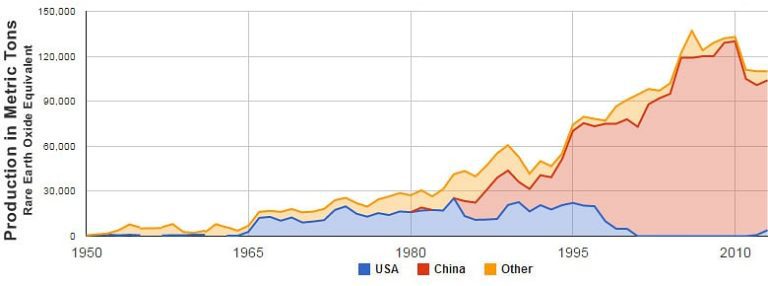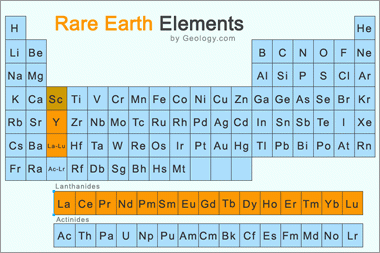The large demand for a number of rare earth elements for use in high tech devices has led to an oversupply of others. TU researchers are looking for useful applications of these by-products.
Rare earth elements have become essential ingredients for high tech products ranging from batteries and smartphones to LED lights and wind turbines. Their vital role in the high tech economy in combination with export restrictions in China have led to increased mining activity in Australia and the US. Paradoxically, there is now an oversupply of certain rare earth elements that are less in demand.
The rare earth elements are a group of 17 elements in the periodic system, which are not so much rare as thinly spread. Current mining practice produces a mixture of all 17 elements of which only five are most in demand: neodymium (Nd) for magnets, Europium (Eu) for displays, Terbium (Tb) for fuel cells, displays and magnets, dysprosium (Dy) for lasers and hard disks and Yttrium (Y) for camera lenses and lasers. The other twelve elements are less in demand but get mined in the same amounts. The practice will cause a ‘balance problem’, as Dr. Erik Offermans (3mE) calls it.
Offerman is an expert in metallurgy. He teamed up with his colleagues Dr. Yongxiang Yang (Materials Science and Engineering) and Prof. Thijs Vlught (Process and Engergy) for a research programme aimed at tackling the balance problem in rare earth elements.
Their mission is to turn rare earth elements from mining waste into high value alloys for automotive or aviation industry. Ionic liquids and recycling technology will help to recover the metals from the waste. Metallurgists will explore ways to mix the elements into magnesium alloys. Offermans believes these new alloys have the potential for components in drive-trains because they keep their mechanical properties at higher temperatures.
The research project will start modestly with a two-year postdoc contract, sponsored by the research groups themselves plus additional funding from the Dean Theun Baller. The researchers believe the project will prepare them for upcoming calls from various European institutions on recycling, sustainability and materials scarcity.





Comments are closed.